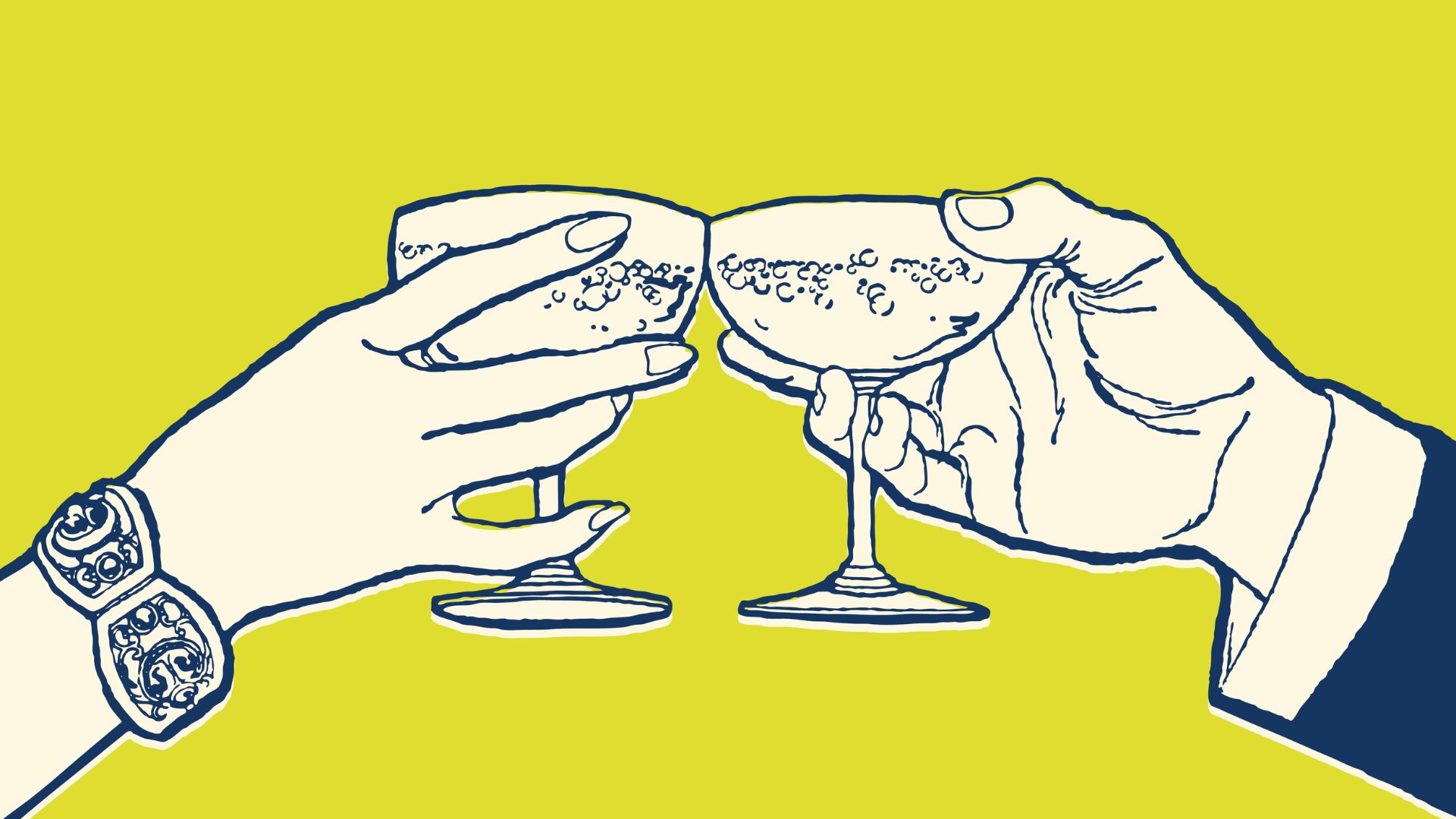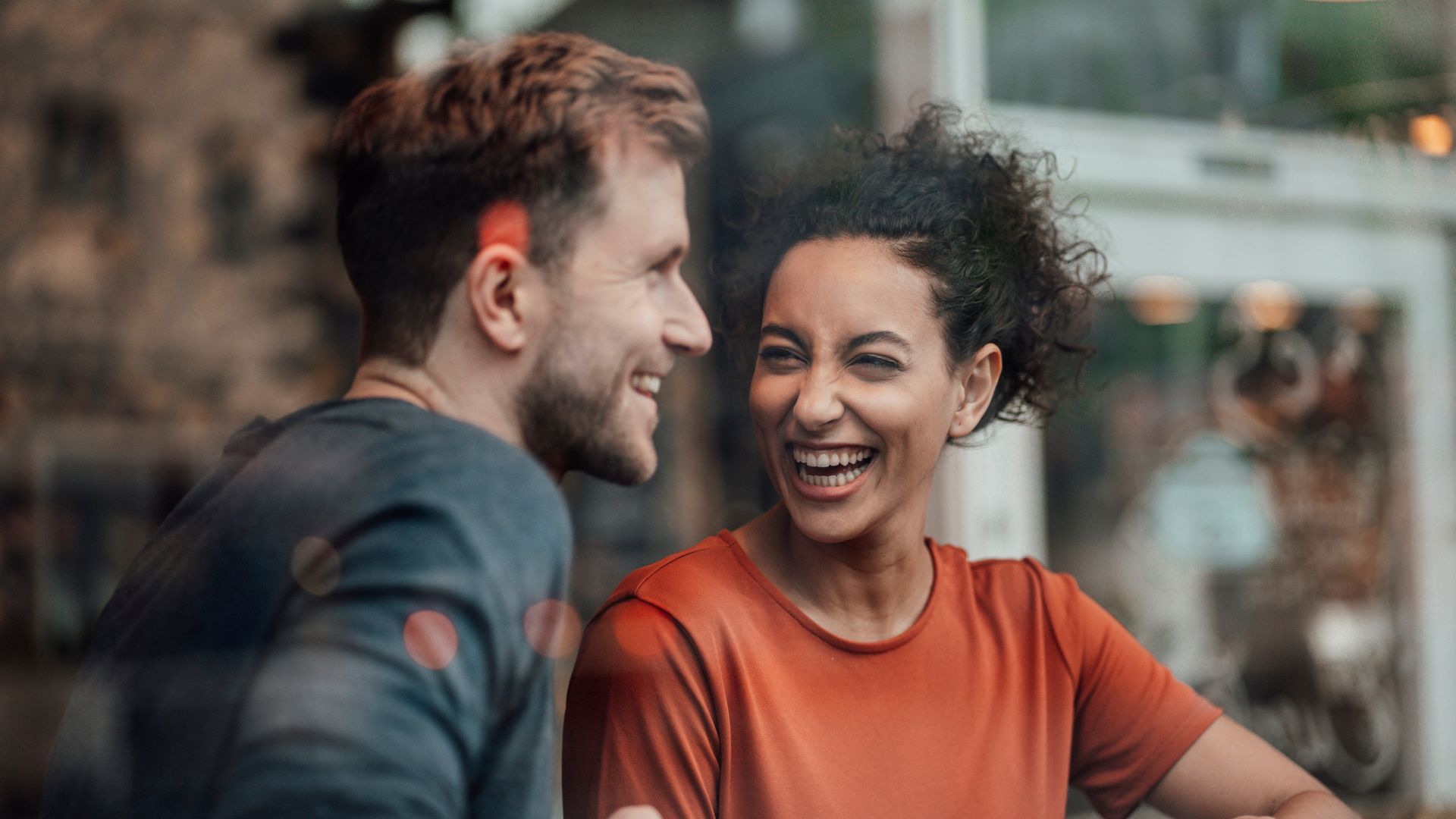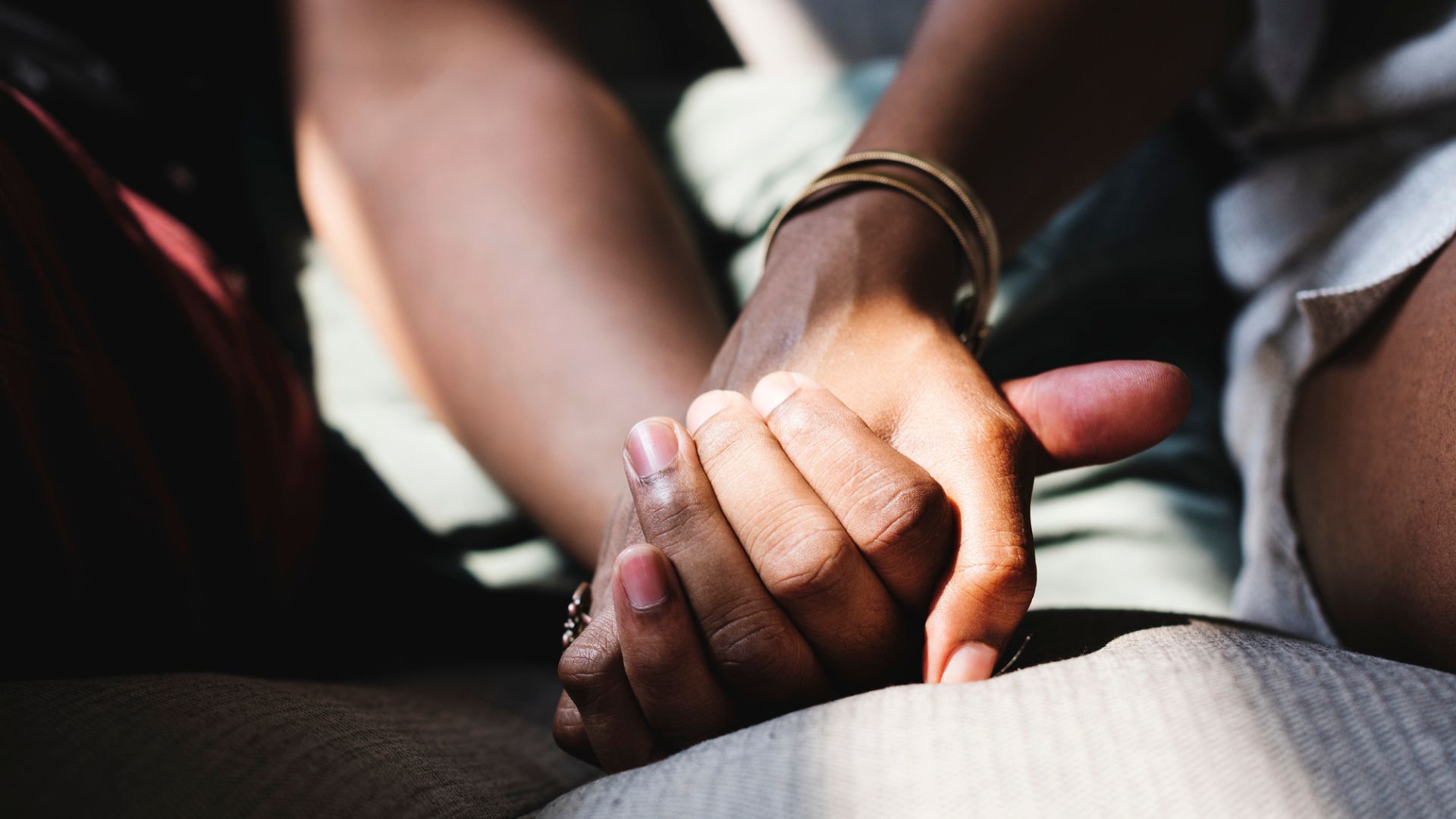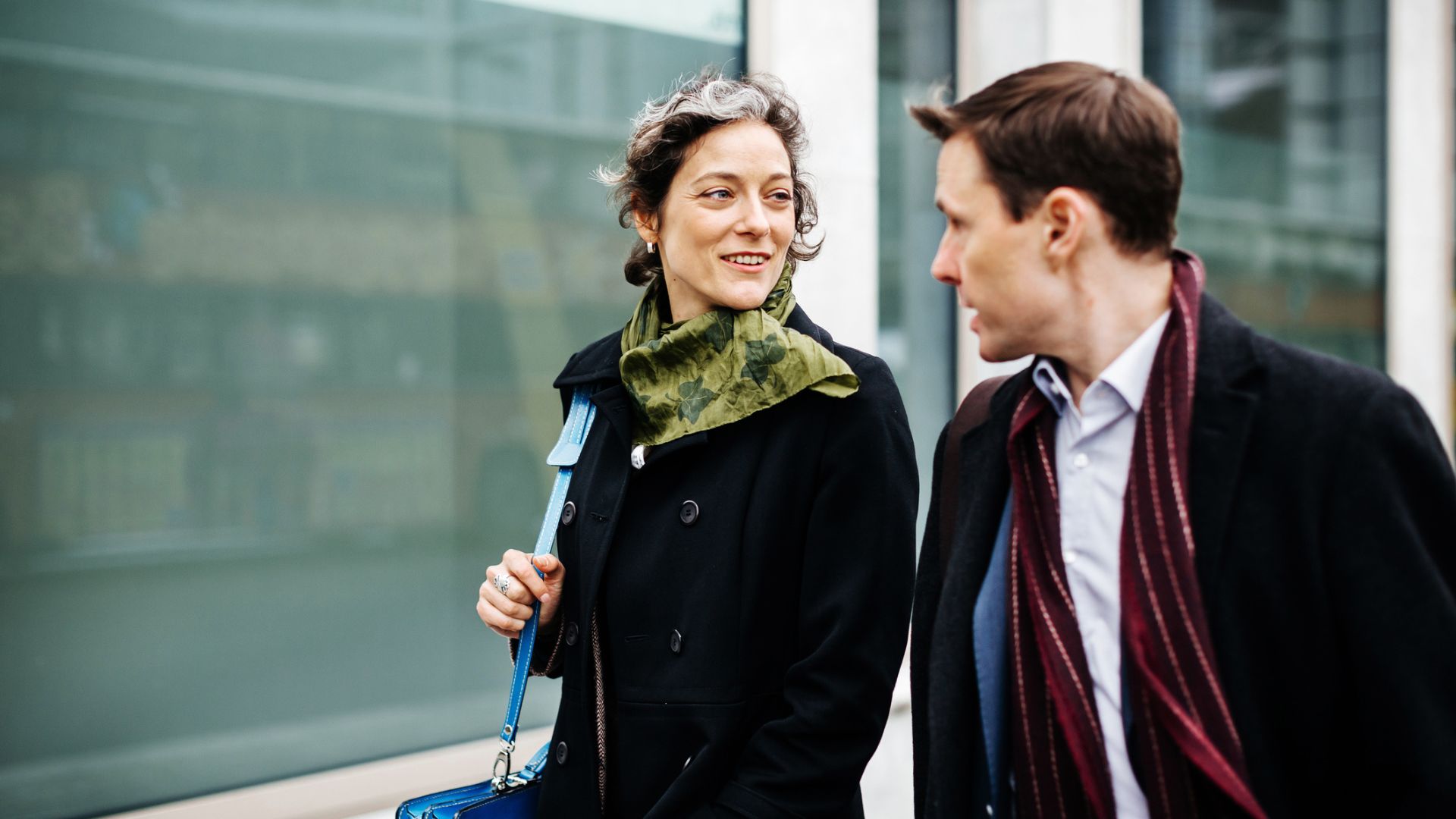"I stopped selecting people who preferred the intoxicated version of me" - 4 women on how sober dating changed their love lives for good
Sober dating is the new TikTok trend, but what's it really like? Plus, how to do it


Sober dating is the latest relationship trend to sweep TikTok, with thousands of users sharing their experiences, highs, and lows of dating without drinking alcohol.
Of course, the idea of sober dating is nothing new. Those in recovery and anyone who has had to reevaluate their relationship with alcohol while looking for a partner will be very familiar with the concept. However, rather than it being a ‘must’, many of those trying sober dating in 2023 are doing so voluntarily as a way to better connect with themselves and those across the table.
While it might be more popular now than ever before, it's a journey that started in the early dates of Covid-19, the stats suggest. With bars closed, those keen to connect had to find other ways to do so. Plenty of Fish, one of the most popular dating apps for relationships, surveyed 2000 single adults and found that 83% said they'd be "open" to dry dating in 2020. While sober dating app Loosid was named by WhistleOut as the most-popular niche dating app for those in California and New York during this time, with an uptick of 620% in messages, according to Forbes.
Where there’s interest, there’s industry backing, and today there are plenty of low-alcohol and alcohol alternatives available for anyone interested. But what's sober dating like in the real world? Here, four sober women tell us what dating is like without drinking and what you really need to know, in case you want to try it for yourself.
What is sober dating?
Sober dating, as the name suggests, is going on dates without drinking any alcohol. In actual terms, sober dating means meeting new people, having (sometimes awkward) conversations, and negotiating relationships without the crutch and social lubricant that alcohol offers.
For many people, including Ashley Loeb Blassingame, 36, from Laguna Beach in California, sober dating also means totally reevaluating how and who you date. “Before I stopped drinking, I was very focused on dating people who partied the way I did. Oftentimes, I would prioritize our drinking compatibility instead of more important characteristics like values and ambition,” she tells woman&home.
“I also found my drinking masked my ability to truly connect with and know others. I missed red flags of all sizes and would find myself in a relationship with someone who was at best incompatible. What I didn’t understand then was that I was selecting partners who preferred the intoxicated version of me.”
Sign up to our free daily email for the latest royal and entertainment news, interesting opinion, expert advice on styling and beauty trends, and no-nonsense guides to the health and wellness questions you want answered.
After getting sober in 2006, Ashley's dating life changed. “I was able to make sound decisions that considered my expectations, goals, and boundaries. Additionally, the healthier I became, the more other healthy people were attracted to me. My self-esteem improved, which was reflected in the people I chose to date.”
However, as much as there are benefits of not drinking alcohol, there's no denying sober dating is also a challenge. As drinking alcohol, often to excess, is still very much considered the social norm when dating in the US and UK in particular, going against the grain and without so-called ‘Dutch courage’ isn’t always easy.

Is it hard to date as a sober person?
Yes but it’s so worth it, says Tanya, a 48-year-old from Washington who moved to London over 15 years ago. “I met my husband [who also doesn’t drink] after I was sober for five years. Before that, I was dating while trying to be sober and it was a hard time. I made too many excuses for myself looking back, trying to find a reason why I couldn’t drink when really I should have said I just didn’t want to. Though it was hard to give up, I wouldn’t have met [my husband] if I’d kept on drinking.”
The adjustment period was the hardest part, she says. "I felt like I was in limbo for a couple of years, sometimes drinking on dates and sometimes feeling like I could get away with it and have a [soft drink]. It was exhausting bouncing between being someone trying to get sober and someone who drinks. Drinking dates would often be hardcore too, drinking for hours, and then I'd end up drinking the next time I saw the guy too. It wasn't good for anyone. Eventually, I decided to stop drinking seriously and I found a good line to say when people asked me why I wasn't drinking, but it took time to build that confidence for sure."
This is something that Ashley can certainly relate to. “I wasn’t sure how to tell people that I didn’t drink any longer and if I was even OK being around alcohol if they were drinking. Was it OK to kiss someone who had been drinking? If it was, did I even want to do that? Much of my life was focused on sobriety at the time so it wasn’t an easy topic to side-step either.”
"It was exhausting bouncing between being someone trying to get sober and someone who drinks."
This confusion is normal though, says Molly Desch, a certified sober coach with qualifications in psychology and a former drinker herself. It's something she sees a lot. "It's a good idea to figure out what your boundaries are in relation to dating and sobriety. While this sounds like something everyone in the dating world should do, it's especially important for those in sobriety because, for many people in sobriety, there hasn’t ever been a sober date. How to establish boundaries may not have ever been addressed," she says.
It's also very normal to believe that other people's reactions toward your drinking will be immediately negative, especially if that's how you think you'd have reacted, but this often isn't the case. A lot of that pressure tends to be self-made.
"You don’t have to divulge all of the brutal details about your drunken endeavors right away, but simply letting them know you don’t drink because you like who you are better when sober is a perfectly fine reason. As the relationship progresses and trust is built, you can tell more of your story," Desch says.
That doesn't rule out the possibility of a negative reaction from the person you're dating though, she warns. Occasionally, people will have a reaction to the idea of sober dating that's less than positive.
“One time I went on a date with this guy who was weird about me not drinking,” says Tanya. “We went out to eat at a restaurant and he just ordered a bottle of wine before I could tell him I didn’t drink. He kept making jibes and jokes about all the reasons I might not be drinking, so it clearly made him uncomfortable. He wanted to get drunk with me and I wasn’t going to facilitate that. I left before dessert and ignored his phone calls over the next few days. After that, I always messaged ahead of time to tell them I wasn't drinking.”
"I had to develop a new sense of self."
Meanwhile, Ashley found that the more she disclosed why she became sober, the more negative reaction she received. "Disclosure is an art form that I had not mastered early on and there were definitely times where I said too much," she says. "They weren't turned off by sobriety but by the unnecessary details of my drinking. I had to develop a new sense of self which took time to do and was clunky at first. The more comfortable in my skin I got, the easier and more intuitive dating became for me."
But for all the women we spoke to, once they’d bypassed the adjustment periods, got through the first few awkward moments, deleted phone numbers, and put sobriety at the top of their priority list, sober dating became all about the wins.
Benefits of sober dating
1. More authentic connection
“The biggest change for me was that we were finally connecting for real," says Gillian Tietz, 32, from Boston, who became sober shortly after dating her now-husband. "The date wasn’t instantly fun because I wasn’t drinking anymore, but we were able to talk about real things and get to know each other better. When I was drunk all the time, there was no point in being vulnerable and opening up to me because I wouldn’t remember all of it. I was easily distracted and I wasn’t in the right mental state to respond in supportive ways.”
2. More romance
Kristen, 58, from Rhode Island, rediscovered romance with her husband when they both gave up alcohol in 1992. "We started dating in the [previous] December and it all centered around alcohol," she tells me. "I really liked him and he was a faithful guy but I had no trust. The more I drank, the more jealous I became and it led to fights. Finally, I hit rock bottom and knew something had to change. [My husband] Dave agreed to support me in whatever way he could. We both knew we were great for each other but not while drinking, so we made the decision that the relationship was more important than alcohol."
The romance came when the couple found alternative date nights, where they could actually talk. "Instead of going out and getting loaded, we would go out for nice dinners where I would actually eat and we’d talk about our dreams and goals,” she says. “We would go to movies and hold hands. We would try to improve ourselves in every area, physically, emotionally, and spiritually.”

3. Dates become more about what you do than what you drink
There’s no better way to get to know someone than doing an activity with them - whether it’s their favorite hobby or something they’ve never done before - and drinking certainly gets in the way of this.
"I went through a phase of just going for walks," says Tanya. "For about a year and a half, whenever I had a date I would just say, 'Great, meet me at Hyde Park [in Central London] and we'll take a walk together'. More often than not, I'd find something I didn't like about them in less than half an hour. If I had been drinking, I probably would have sat at a bar with them for at least three hours just to have a couple of glasses of wine with someone."
Gillian, who is also the host of the Sober Powered podcast, says ditching alcohol changed just about every part of dating life with her husband. “We started going out to fine dining restaurants instead of bars. We also started going to more concerts and taking weekend trips. I thought we would never have fun again but eventually, I realized we were just sitting around drinking and doing nothing before. Now we actually do stuff.”
4. Better sex
Looking to improve your sex life? Not only are there serious considerations around consent to be made when having sex under the influence, but even early research from the University of Washington shows that alcohol is the main disruptor of a good time. The study in this case found that alcohol may increase arousal in women but it has a negative effect on the genital response, making orgasm significantly harder.
“I definitely agree that sober sex is better,” laughs Tanya. "What's not to like about it? You're probably having sex with someone you actually like, rather than someone who looks good after a couple of glasses, and everything works a lot better for both of you downstairs if you haven't been drinking."

5. Saves money
It goes without saying that opting for alcohol alternatives and soft drinks comes with a significantly lower bill at closing time but the impact of this is often underestimated, with the US Bureau of Labour suggesting that the average household spends $579 per year on alcohol. This doesn't include any alcohol-induced additional spending though, like food on the way home from the date, taxis, or overnight stays in hotels.
“We saved tons of money because we didn’t need hotel rooms and our bar bills disappeared,” says Kristen, as she and her husband would often take a room for the night wherever they were drinking to avoid driving drunk.
Wondering what happens after you give up alcohol for good? It's not just the impact sober dating has on your romantic life that's worth considering, Ashley says. Going sober tends to trickle through to "choices in every aspect" of life as you're forced to do a lot of self-reflection and inner work in the process of dating this way.
How to date when you're sober
- Date other sober people: “It will help with the awkwardness because the other person will understand what you are going through,” says Ashley. “You will also have more in common with their life experiences.”
- Write it on your profile: Using one of the best dating sites to find a potential partner? Write on your bio that you don't drink. "As someone who is sober, I don’t want to have to put the word 'sober' in my tagline, but I feel it's necessary to weed out potential matches," says sober coach Desch. "You can also fish for information on how much the potential partner drinks by asking how they wind down from a stressful day, or what sorts of activities they participate in frequently outside of their house."
- Send a text: “It can be helpful to send a text before the date saying ‘heads up, I don’t drink but I don’t mind if you do! Looking forward to seeing you later’ because then you don’t have to worry about it coming up in person,” says Gillian, who is also a certified sober coach herself. If someone has a problem with that, at least you still have time to cancel the date.
- Avoid bars: Kristen says to skip drinking establishments altogether “unless there’s a real reason to be there.” Eventually, this does get easier, she says, and “now we can spend time happily with our friends who drink now. But for the first two years, we stayed close to sober people and did activities with them.” For alternative date ideas, check out some of the best quit lit books.
- Find what works for you: If your partner wants to continue drinking, discuss how you’d like that to happen. “What helps me most is that [my husband] lets me know if he’s going to be drinking and he doesn’t drink wine around me [because that was] my drink,” says Gillian.
- Take a break from dating: If you are newly sober, rather than considering mindful drinking or sober dating, consider whether this is the right time for you to be dating at all. "For someone who is newly sober (less than 1 year), I would recommend not dating at all. Use this time to get to know yourself and gain the confidence needed to date soberly," says Desch.

Grace Walsh is woman&home's Health Channel Editor, working across the areas of fitness, nutrition, sleep, mental health, relationships, and sex. She is also a qualified fitness instructor. In 2025, she will be taking on her third marathon in Brighton, completing her first ultra marathon, and qualifying as a certified personal trainer and nutrition coach.
A digital journalist with over seven years experience as a writer and editor for UK publications, Grace has covered (almost) everything in the world of health and wellbeing with bylines in Cosmopolitan, Red, The i Paper, GoodtoKnow, and more.